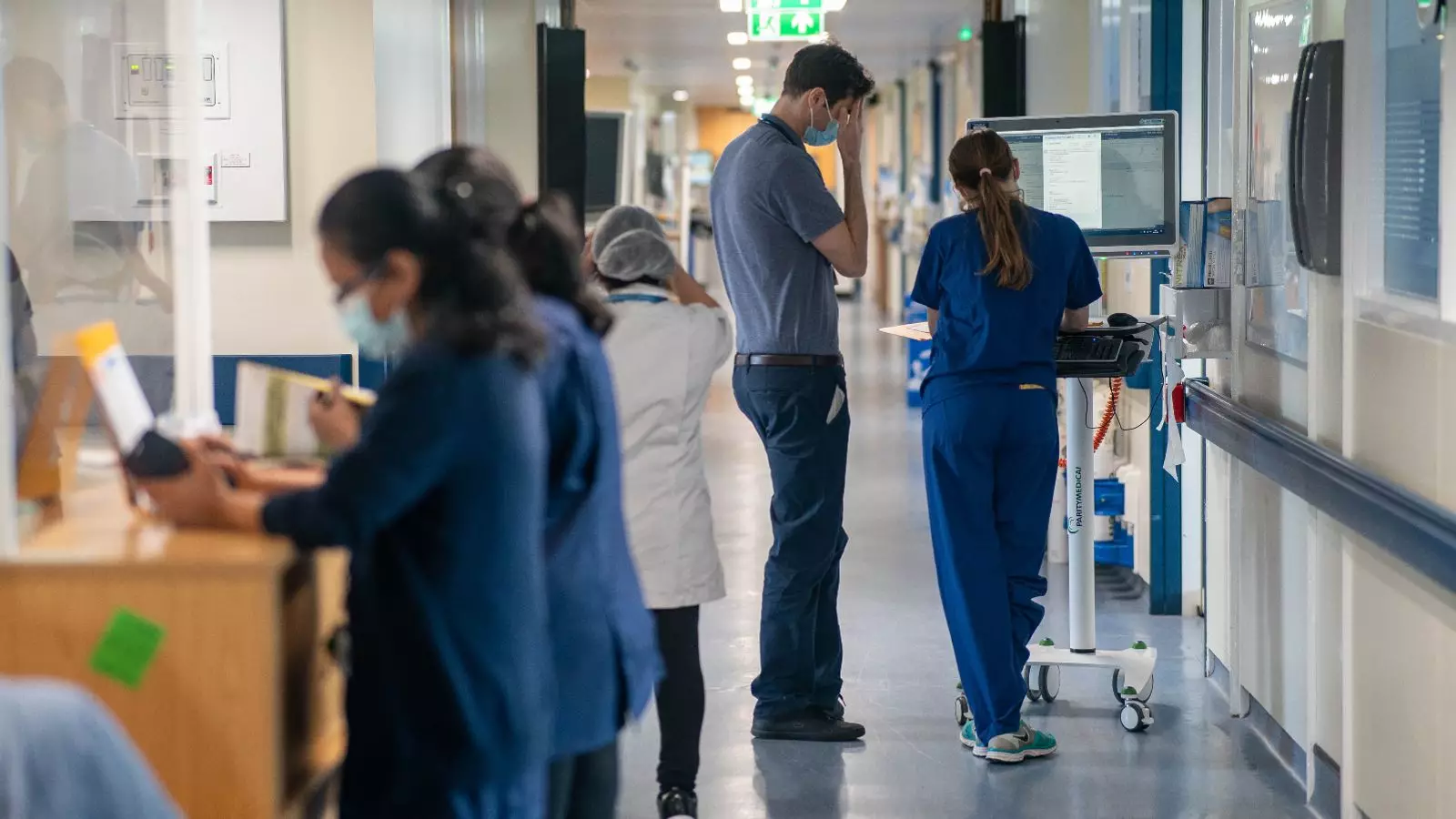The public satisfaction with the National Health Service (NHS) has hit an all-time low, dropping to just 24% in 2023, according to the findings from a British Social Attitudes poll. This marks a significant decrease from the previous year, with poor access to GPs and long wait times for hospital treatment being key factors contributing to this decline. The report highlighted that satisfaction levels have decreased by five percentage points, reaching the lowest level since records began in 1983. Not only is there a decrease in satisfaction with A&E services and dentistry, but social care satisfaction is even worse, with only 13% of respondents expressing contentment.
When asked about the most critical priorities for the NHS, the majority of respondents pointed to the importance of making it easier to secure a GP appointment (52%) and increasing staff numbers (51%). Additionally, improving waiting times in A&E and for planned operations were also highlighted as significant areas for improvement, with 47% and 45% of people selecting these options, respectively. Despite the dissatisfaction with the current state of the NHS, there is a clear indication that the public supports the fundamental principles underpinning the service, such as being free at the point of use and funded through taxes.
The report attributes the decline in public satisfaction to a variety of factors, including a decade of squeezed funding, chronic workforce shortages, and the impact of a global pandemic. Funding is a major concern for the majority of respondents, with 84% believing that the NHS is facing a severe problem in this area. Interestingly, nearly half of the respondents (48%) believe that ministers should increase taxes and spend more on the health service to address these challenges. It is noteworthy that individuals with higher monthly income are more inclined towards this option compared to keeping taxes the same or reducing them.
Key stakeholders, including political leaders and healthcare professionals, have called for urgent action to address the decline in public satisfaction with the NHS. Dan Wellings from the King’s Fund emphasized that political leaders must take heed of the significant drop in satisfaction levels, especially in light of the upcoming general election. Professor Pat Cullen from the Royal College of Nursing stressed the importance of investing in nursing to enhance pay conditions and stabilize the workforce. It is evident that any party aspiring to be in power must demonstrate a clear commitment to investing in healthcare to meet the public’s expectations.
The Department of Health and Social Care has expressed its full commitment to delivering a faster, simpler, and fairer NHS. They have highlighted the progress made in reducing waiting lists in England and the substantial increase in funding provided to the NHS. By the end of the current Parliament, the NHS will receive record funding of nearly £165bn per year, representing a significant increase in real terms compared to previous years.
The findings from the British Social Attitudes poll paint a grim picture of the current state of public satisfaction with the NHS. While there is a clear desire for improvement in key areas such as access to GPs, waiting times, and staffing levels, the public remains supportive of the core principles of the NHS. Urgent action is needed from policymakers and healthcare providers to address the concerns raised by the public and restore confidence in the health service.

Leave a Reply